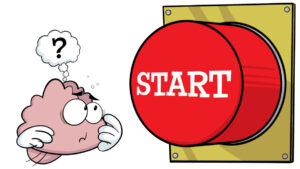Problem-solving is part of our executive functions
Executive functions are like the brain’s control centre. They help us focus, think, act, and manage our emotions. These skills are super important for everything we do, like schoolwork, daily tasks, and getting along with others.
These abilities grow and improve as we go through childhood, our teenage years, and early adulthood, usually becoming fully developed by around age 25. Everyone has their own strengths and challenges in these skills. But the good news is, we can always work on getting better at them and find ways to help with the ones we find tough.
TOPS helps us with our executive function challenges by teaching us problem-solving strategies that we can use in our daily lives.
Emotion Regulation
Managing our emotions and coping with change.
In this section you will be asked about:
- Cognitive flexibility
- Emotional control
Cognitive flexibility allows us to switch between different situations and viewpoints when needed. This helps us adapt and solve problems effectively.
This skill is covered in the Flexible Thinking session.
Emotional control is adjusting our emotional responses to fit the situation. This skill helps us manage our anxiety, anger, and distress without overreacting.
This skill is covered in the Controlling Your Emotions session.
Cognitive Regulation
Thinking skills that help us to get things done.
In this section you will be asked about:
- Getting started on tasks
- Finishing tasks
- Remembering what you’re doing
- Monitoring your progress on tasks
- Planning and organising
- Keeping everything organised
- Time management
- Staying focused
 Getting started on tasks is beginning a task or activity when you need to, without getting distracted. It also includes being able to come up with ideas and solutions on your own.
Getting started on tasks is beginning a task or activity when you need to, without getting distracted. It also includes being able to come up with ideas and solutions on your own.
This skill is covered in the Initiation session.
Finishing tasks is completing a task or activity on time. This includes finishing tests and assignments within time limits and keeping a good pace throughout the task.
This skill is covered in the Initiation session.
Remembering what you’re doing (working memory) is keeping information in your mind while you’re doing tasks. It helps you remember instructions and recall the steps you need to follow for what you’re currently working on.
This skill is covered in the Memory session.
Monitoring our progress on tasks is checking how well you’re doing while you’re working on something or after you’ve finished. This helps you make sure you’re meeting your goals. We talk about this skill throughout TOPS-UK.
Planning and organising involves thinking ahead about future events, setting goals, and figuring out the steps needed to reach them. This means doing tasks in an orderly way, and being able to identify and explain important ideas or concepts.
This skill is covered in the Solving Problems in Everyday Life session.
Keeping everything organised is keeping work and home spaces tidy and keeping belongings in places where you can find them.
This skill is covered in the Getting Organised session.
Time management involves figuring out how long tasks will take and knowing how much time you’ve already spent. These skills can help you be on time and set realistic goals.
We talk about this throughout TOPS-UK and it is covered in more detail in the Managing Your Time session.
Staying focused is concentrating without getting distracted by your thoughts or the things happening around you.
This skill is covered in the Attention session.
Behaviour Regulation
In this section you will be asked about:
- Impulse control
- Self-monitoring
Impulse control is managing our behaviour and thinking before we speak or act. This self-control allows us to work towards our goals while avoiding actions that could be unhelpful in the long run. We talk about this “stop and think” skill throughout TOPS-UK.
Self-monitoring is keeping track of our behaviours and how they might affect other people.
This skill is covered in the Staying in Control session.

